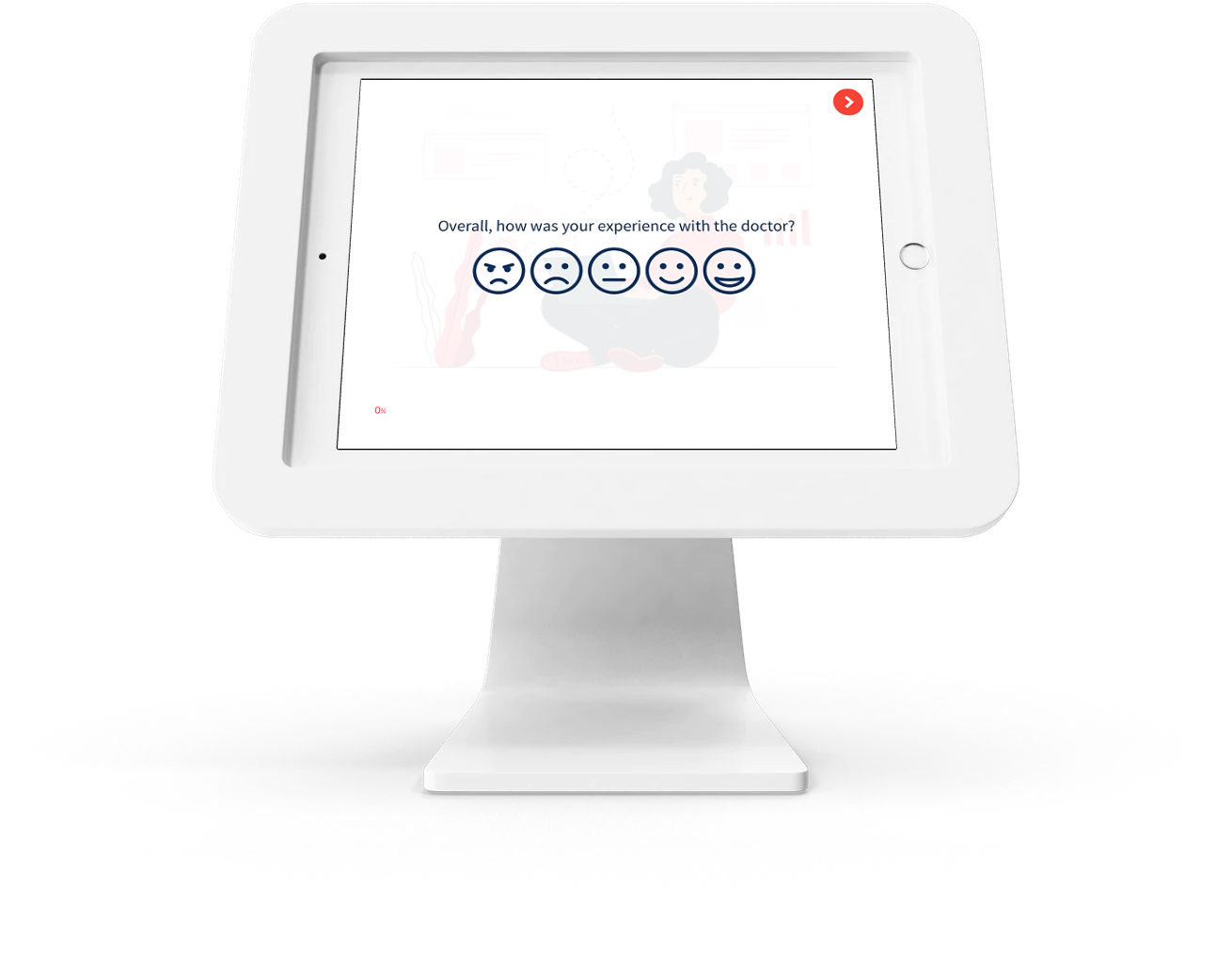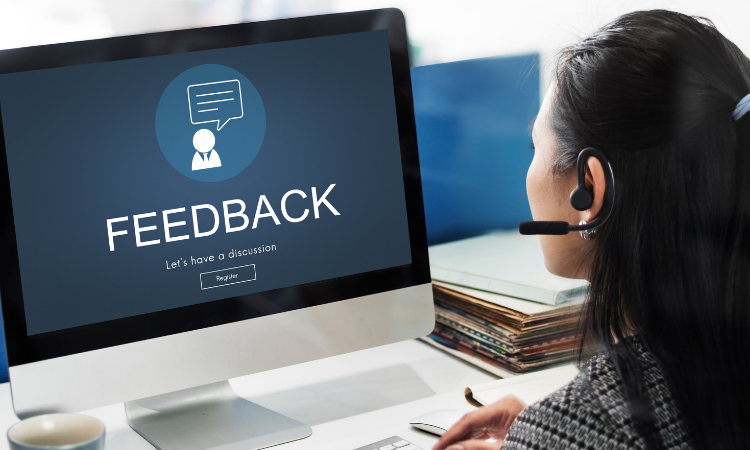Did you know that 82% of patients say that the quality of customer service is the most important factor they consider when choosing a healthcare provider? In today’s healthcare environment, patient feedback is more than just a metric; it’s a critical component that influences the overall quality of care, patient satisfaction, and trust. By capturing and acting on patient feedback, healthcare providers can identify areas for improvement, enhance patient experiences, and ultimately deliver better healthcare outcomes.
However, collecting patient feedback comes with its own set of challenges, particularly concerning the protection of sensitive patient information. This is where the Health Insurance Portability and Accountability Act (HIPAA) comes into play. HIPAA sets the standard for protecting sensitive patient data, ensuring that any information collected through feedback and surveys is kept secure and confidential. Compliance with HIPAA not only safeguards patient information but also builds trust and confidence in the healthcare provider.
In this article, we will explore the importance of HIPAA-compliant surveys in healthcare. We will cover the key components of HIPAA compliance, the benefits of using HIPAA-compliant feedback systems, and practical steps for implementing these surveys in your healthcare practice.
TL;DR
- Collecting patient feedback is crucial for improving healthcare quality, patient satisfaction, and trust.
- Ensuring surveys comply with HIPAA is essential for protecting sensitive patient data and maintaining legal compliance.
- HIPAA-compliant surveys enhance patient trust, improve care quality, ensure legal protection, build a patient-centric culture, and boost operational efficiency.
- To implement effective surveys, choose the right survey tools with robust security measures, design HIPAA-compliant surveys, and secure survey data through encryption and access controls.
- Zonka Feedback offers advanced security features, HIPAA and GDPR compliance, customizable survey templates, seamless integrations, and a 14-day free trial to experience its full benefits.
Collect Patient Insights with HIPAA Complaint Survey Tool👩⚕️
Use HIPAA Complaint survey tool to create your healthcare surveys and questionnaires to securely collect feedback from patients in real-time.

Understanding HIPAA Compliance
HIPAA, the Health Insurance Portability and Accountability Act, was enacted in 1996 to ensure the protection and confidential handling of patient health information (PHI). In the context of patient feedback and surveys, HIPAA compliance is crucial as it mandates strict guidelines for collecting, storing, and sharing patient data. Non-compliance can lead to severe penalties, including hefty fines and legal action, making it essential for healthcare providers to adhere to HIPAA regulations.
HIPAA compliance revolves around three primary components:
-
Privacy Rule: This rule establishes national standards for the protection of individually identifiable health information. It mandates that healthcare providers must implement safeguards to ensure the confidentiality of patient data and restrict its use and disclosure without patient consent.
-
Security Rule: This rule outlines the administrative, physical, and technical safeguards required to ensure the confidentiality, integrity, and security of electronic protected health information (ePHI). This includes measures such as encryption, access controls, and audit trails to protect data from unauthorized access and breaches.
-
Breach Notification Rule: This rule requires covered entities to notify affected individuals, the Department of Health and Human Services (HHS), and, in some cases, the media, of a breach of unsecured PHI. Timely breach notification is essential to mitigate harm and maintain patient trust.
For healthcare providers utilizing patient feedback and survey tools, it is imperative to choose platforms that are HIPAA-compliant. These platforms should have robust security measures in place, such as data encryption, secure data storage, and access controls, to ensure that patient information is protected at all times. Adopting CIEM security can further enhance access control by providing visibility into user permissions and reducing the risks posed by excessive access rights.
In summary, understanding and implementing HIPAA compliance is not just about avoiding legal repercussions; it’s about ensuring that patients’ sensitive information is handled with the utmost care and respect. This commitment to data security fosters a trustworthy relationship between healthcare providers and patients, ultimately leading to improved patient satisfaction and care quality.
Importance of HIPAA-Compliant Surveys
In the realm of healthcare, maintaining patient privacy and data security is paramount. As healthcare providers, ensuring that your feedback collection process adheres to strict regulatory standards is crucial. HIPAA-compliant surveys are essential for protecting sensitive patient information from unauthorized access and breaches. These surveys not only fulfill your legal obligations but also play a critical role in building patient trust and enhancing the overall quality of care you provide.
HIPAA compliance in patient satisfaction surveys guarantees that you are taking the necessary steps to safeguard patient data, thereby fostering a culture of transparency and accountability. In an era where data breaches and cyber threats are prevalent, the importance of HIPAA-compliant surveys cannot be overstated. They ensure that patient information is handled with the utmost care, which is crucial for maintaining the integrity and reputation of your healthcare institution.
Benefits of HIPAA-Compliant Surveys
-
Enhancing Patient Trust and Satisfaction When your patients are assured that their personal health information is being handled securely and confidentially, they are more likely to provide honest and comprehensive feedback. This transparency builds trust between you and your patients. Knowing that their data is protected under strict HIPAA guidelines, patients feel more comfortable and confident in sharing their experiences and concerns, leading to more accurate and valuable feedback for you.
-
Improving Quality of Care Through Secure Feedback Securely gathered patient feedback allows you to gain insights into various aspects of patient care. This information can highlight your strengths and identify areas needing improvement. For example, feedback can reveal issues related to wait times, the quality of interactions with your healthcare staff, and the effectiveness of treatments. By analyzing this feedback, you can implement targeted improvements, enhancing the overall quality of care and patient outcomes.
-
Ensuring Legal Protection and Avoiding Penalties Non-compliance with HIPAA can result in severe penalties, including substantial fines and legal consequences. By ensuring that your patient surveys and feedback mechanisms are HIPAA-compliant, you can avoid these financial and reputational risks. Adopting HIPAA-compliant survey tools demonstrates your commitment to upholding the highest standards of patient data protection, which can also serve as a competitive advantage in the healthcare market.
-
Building a Patient-Centric Culture Using HIPAA-compliant surveys helps you foster a patient-centric culture within your organization. By prioritizing patient privacy and actively seeking feedback, you show that you value patient opinions and are dedicated to continuous improvement. This approach can lead to increased patient loyalty, positive word-of-mouth referrals, and a stronger reputation in your community.
-
Enhancing Operational Efficiency HIPAA-compliant survey tools often come with features that streamline the feedback collection and analysis process. Automated data collection, secure storage, and advanced analytics can save you time and resources, allowing you to focus on delivering quality care. These efficiencies contribute to better decision-making and more effective interventions based on patient feedback.
HIPAA-compliant surveys provide a secure and effective way for you to gather critical patient feedback. The importance of these surveys extends beyond mere compliance, impacting patient trust, care quality, and operational efficiency, making them indispensable tools for any healthcare provider committed to excellence in patient care.
Implementing HIPAA Surveys in Healthcare Enterprises
Implementing HIPAA-compliant surveys in your healthcare practice requires careful planning and the right tools. Here’s how you can ensure your surveys meet HIPAA standards while capturing valuable patient feedback effectively.
Choosing the Right Survey Tool
Selecting the right survey tool is the first and most crucial step. Here are some features to look for:
-
HIPAA Compliance: Ensure the survey tool is explicitly designed to comply with HIPAA regulations. This includes features such as encryption, secure data storage, and access controls.
-
Data Security: The tool should offer robust security measures, including end-to-end encryption, secure data transmission, and storage solutions that protect against unauthorized access.
-
User-Friendly Interface: The tool should be easy for both patients and healthcare staff to use. A simple, intuitive interface ensures higher response rates and more accurate data collection.
-
Customization: The ability to customize surveys to fit your specific needs is essential. Look for tools that allow you to tailor questions and formats to match your practice’s requirements.
-
Integration: Ensure the tool can integrate seamlessly with your existing electronic health records (EHR) and other healthcare management systems.
Why Zonka Feedback is an Ideal Choice?
Zonka Feedback offers all these features and more, making it an excellent choice for healthcare providers looking to implement HIPAA-compliant surveys. With its robust security measures, customizable survey templates, and seamless integration capabilities, Zonka Feedback ensures your patient data is protected while providing valuable insights into patient experience. Key security features of Zonka Feedback include:
- Business Associate Agreement (BAA): Zonka Feedback provides a Business Associate Agreement (BAA) to ensure that your partnership complies with HIPAA regulations. This agreement outlines the responsibilities of both parties in protecting patient data, further ensuring that your patient feedback processes are fully compliant.
- End-to-End Encryption: Ensures that patient data is encrypted both during transmission and storage, protecting it from unauthorized access.
-
Access Controls: Implements strict access controls to ensure that only authorized personnel can access patient feedback data, with role-based access limiting data visibility based on job function.
-
Secure Data Storage: Uses secure servers and storage solutions that comply with HIPAA regulations to protect patient information.
-
Audit Trails: Maintains detailed logs of all data access and modifications to monitor data use and detect any unauthorized access or breaches.
-
Regular Security Audits: Conducts routine security assessments to identify and address any vulnerabilities in data management systems.
Designing HIPAA-Compliant Surveys
Designing surveys that comply with HIPAA standards involves several best practices:
-
Minimal Data Collection: Collect only the information that is necessary for your intended purpose. Avoid asking for sensitive personal information unless absolutely required.
-
Clear and Concise Questions: Use straightforward, easy-to-understand language. Ensure that your questions are relevant to the patient’s experience and avoid any ambiguity.
-
Informed Consent: Clearly inform patients about the purpose of the survey and how their data will be used. Obtain explicit consent before collecting their feedback.
-
Anonymity and Confidentiality: Whenever possible, allow patients to provide feedback anonymously. Ensure that any identifiable information is kept confidential and secure.
Securing Survey Data
Once you have collected patient feedback, it’s crucial to ensure that the data is stored and managed securely:
-
Encryption: Use end-to-end encryption to protect data both in transit and at rest. This ensures that even if data is intercepted, it cannot be read without the appropriate decryption key.
-
Access Controls: Implement strict access controls to ensure that only authorized personnel can access patient feedback data. Use role-based access to limit data visibility based on job function.
-
Audit Trails: Maintain detailed logs of all data access and modifications. This helps in monitoring data use and detecting any unauthorized access or breaches.
-
Regular Security Audits: Conduct regular security audits to identify and address any vulnerabilities in your data management systems. Ensure that your survey tool undergoes routine security assessments.
By following these guidelines, you can implement HIPAA-compliant surveys that effectively capture patient feedback while ensuring the security and confidentiality of patient information. These measures not only protect your patients but also enhance your organization’s reputation and trustworthiness.
Implementing HIPAA-compliant surveys is a critical step in improving patient care and satisfaction. With the right tools and practices, you can gather valuable insights while maintaining the highest standards of data security and privacy.
Methods of Capturing Patient Feedback
Collecting patient feedback is crucial for understanding patient experiences and improving the quality of care. There are several effective methods to capture patient feedback, each with its own advantages and ideal touchpoints. Here’s how you can use different methods to gather comprehensive and valuable insights from your patients.
In-Person Surveys
Face-to-face interactions are a traditional and effective method of collecting patient feedback. Engaging directly with patients allows healthcare staff to capture immediate responses and address any concerns on the spot. However, a more efficient and modern approach is to use devices such as iPhones, iPads, Android tablets, and smartphones for these interactions. By handing over these devices to patients for a few minutes, you can collect their feedback digitally.
This method not only saves time but also ensures that the data is instantly recorded and securely stored. In-person surveys using devices can be conducted in waiting areas, at the end of appointments, or during discharge processes, providing a seamless and convenient way to gather valuable insights.
Touchpoints
-
At the end of a patient’s visit.
-
In waiting areas before or after appointments.
-
During discharge or check-out processes.
Kiosk Surveys
Kiosk surveys involve setting up kiosks or tablets in your healthcare facility where patients can provide feedback. These kiosks can be strategically placed in high-traffic areas to maximize participation. Kiosk surveys are convenient for patients and can capture their experiences immediately after they occur.
Touchpoints
-
In the waiting areas.
-
Near exits or discharge areas.
-
At check-in counters or reception desks.
 In-Product Surveys
In-Product Surveys
In-product surveys include in-app surveys, surveys on patient portals, and website surveys. These surveys can be triggered at specific points during a patient’s interaction with your digital platforms, such as after booking an appointment or accessing test results. In-product surveys are convenient and can capture real-time feedback from patients.
Touchpoints
-
Post-appointment booking through the website or app.
-
After accessing test results or health records on the patient portal.
-
During or after telehealth consultations.
Email and SMS Surveys
Email and SMS surveys allow you to reach patients outside of your healthcare facility. These surveys can be sent after appointments, treatments, or other significant interactions. Email and SMS surveys offer patients the flexibility to respond at their convenience, providing a broad reach and high response rates.
Touchpoints
-
Post-appointment follow-ups.
-
After discharge from the hospital.
-
Following significant treatments or procedures.
-
Annual patient satisfaction surveys.
 Challenges and Solutions
Challenges and Solutions
Implementing HIPAA-compliant surveys in healthcare settings can present several challenges. However, with the right strategies and solutions, these challenges can be effectively addressed. Here are some common challenges and practical solutions to overcome them:
Challenge 1: Ensuring Data Security and Privacy
Ensuring the security and privacy of patient data is critical when implementing HIPAA-compliant surveys. Protecting sensitive information from unauthorized access and breaches requires robust security measures.
Solution
-
Robust Encryption: Use end-to-end encryption to protect data both in transit and at rest. This ensures that patient information is secure from unauthorized access.
-
Access Controls: Implement strict access controls and role-based permissions to ensure that only authorized personnel can access sensitive data.
-
Regular Audits: Conduct regular security audits and vulnerability assessments to identify and address potential security risks.
Challenge 2: Integrating Feedback Systems with Existing Workflows
Integrating new feedback systems into existing healthcare workflows can be complex. It is essential to ensure that the new system works seamlessly with your current processes and technologies.
Solution
-
Seamless Integration: Choose a survey tool that offers seamless integration with your existing Electronic Health Records (EHR) and other healthcare management systems. This ensures that feedback collection fits naturally into your current workflows.
-
Automated Processes: Utilize automation features to streamline the feedback collection and analysis processes. Automated alerts and notifications can help ensure timely responses to patient feedback.
Challenge 3: Encouraging Patient Participation
Encouraging patients to participate in surveys can be challenging. Patients may be reluctant to provide feedback or may not find the survey process convenient.
Solution
-
Multi-Channel Feedback Options: Offer multiple channels for feedback, such as in-app surveys, email and SMS surveys, kiosks, and in-person surveys. This increases the likelihood that patients will find a convenient method to provide their feedback.
-
Incentives and Reminders: Provide incentives for completing surveys and send reminders to patients to encourage participation. Simple rewards or entry into a prize draw can significantly boost response rates.
Challenge 4: Maintaining Compliance with HIPAA Regulations
Maintaining compliance with HIPAA regulations is an ongoing challenge that requires continuous effort and vigilance.
Solution
-
Compliance Training: Ensure that all staff involved in handling patient feedback are trained on HIPAA regulations and the importance of data privacy.
-
HIPAA-Compliant Tools: Use only those survey tools that are explicitly designed to be HIPAA-compliant. Verify that these tools have the necessary security features and certifications.
-
Documentation and Policies: Maintain thorough documentation of your data privacy policies and procedures. Regularly review and update these policies to ensure ongoing compliance with HIPAA.
Future of HIPAA Surveys in Healthcare
As the healthcare industry continues to evolve, the role of HIPAA-compliant surveys will become even more crucial in shaping patient experiences and improving care quality. Emerging technologies and changing patient expectations are driving new trends and innovations in the field of patient feedback. Here’s a look at what the future holds for HIPAA surveys in healthcare.
Emerging Trends and Technologies
The landscape of HIPAA-compliant surveys is rapidly evolving with advancements in technology. Here are some emerging trends and technologies that are shaping the future of patient feedback in healthcare:
-
Artificial Intelligence (AI) and Machine Learning (ML): AI and ML are revolutionizing how patient feedback is analyzed and utilized. These technologies can process vast amounts of data quickly, identifying patterns and trends that might be missed by manual analysis. AI-driven insights can help healthcare providers make more informed decisions, predict patient needs, and tailor care more effectively.
-
Real-Time Feedback Collection: With advancements in mobile technology and cloud computing, real-time feedback collection is becoming more feasible. Patients can provide instant feedback through their smartphones or other devices immediately after their healthcare interactions. This real-time data can help providers address issues promptly, enhancing patient satisfaction and care quality.
-
Integration with Wearable Devices: The integration of surveys with wearable devices such as fitness trackers and smartwatches is an emerging trend. These devices can collect health data and prompt patients to provide feedback based on their real-time health metrics. This integration can offer a more comprehensive view of patient health and experiences.
-
Enhanced Data Security Measures: As cybersecurity threats continue to evolve, so do the measures to protect patient data. Future HIPAA-compliant surveys will incorporate advanced encryption technologies, biometric authentication, and other security features to ensure that patient information remains protected against emerging threats.
Changing Patient Expectations
As patients become more engaged in their healthcare, their expectations are also evolving. Healthcare providers need to adapt to these changing expectations to enhance patient satisfaction and care quality. Here are some key aspects of these changing expectations:
-
Personalized Healthcare Experiences: Patients are increasingly expecting personalized healthcare experiences. Future surveys will need to capture more detailed information about individual patient preferences and experiences to provide personalized care. This could include questions tailored to specific patient conditions or treatment plans.
-
Greater Transparency and Engagement: Patients want greater transparency in how their feedback is used to improve care. Future survey systems will likely include features that allow patients to see how their feedback has contributed to changes and improvements in their care experience. This transparency can enhance patient trust and engagement.
-
Convenience and Accessibility: Convenience and accessibility will continue to be key factors in patient feedback collection. Future survey tools will need to be easily accessible through multiple channels, including mobile apps, websites, and social media platforms, to ensure that patients can provide feedback whenever and wherever they choose.
The Role of Zonka Feedback in the Future
Zonka Feedback is at the forefront of these innovations, continually evolving its platform to meet the changing needs of healthcare providers and patients. With a focus on HIPAA compliance, Zonka Feedback is integrating AI and ML capabilities, real-time feedback collection, and enhanced security measures into its survey tools. By doing so, Zonka Feedback ensures that healthcare providers can gather valuable patient insights while maintaining the highest standards of data privacy and security.
Start Implementing HIPAA-Compliant Surveys with Zonka Feedback
Incorporating HIPAA-compliant surveys into your healthcare practice is essential for enhancing patient satisfaction, improving care quality, and ensuring the security and privacy of patient data. An effective HIPAA-compliant tool is crucial for gathering valuable insights while maintaining compliance with stringent regulations.
Zonka Feedback is the right tool for this task, offering advanced security features such as end-to-end encryption, secure data storage, and strict access controls. In addition to being HIPAA-compliant, Zonka Feedback also adheres to GDPR regulations, ensuring comprehensive data protection and privacy for all your patient feedback needs.
Zonka Feedback provides a free trial for 14 days, allowing you to experience its full range of features and benefits without any commitment. Start your free trial today and see how Zonka Feedback can help you enhance patient care and satisfaction in your healthcare practice.











